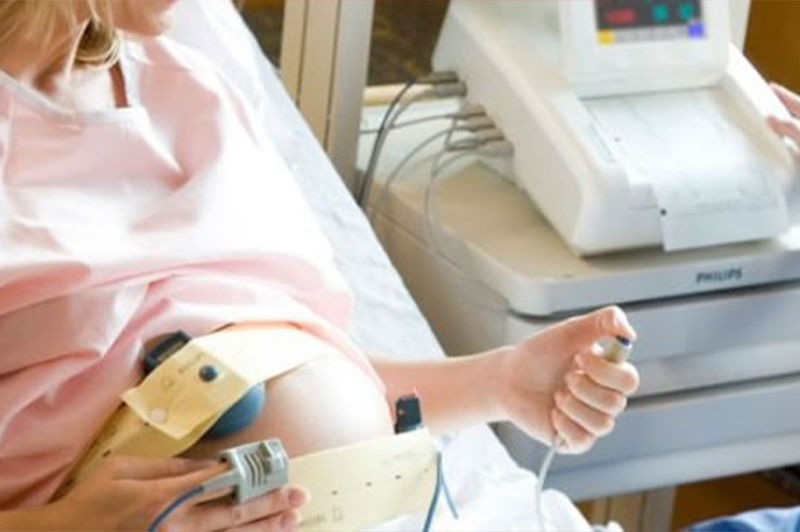Risky Pregnancy Follow-up
Risky Pregnancy Tracking Gaziantep
Pregnancy process may be different for each expectant mother. Pregnancy process may be more difficult in expectant mothers who have existing health problems (such as heart disease, advanced maternal age, adolescent pregnancy, obesity), or there may be a risk of miscarriage. In addition, some mothers-to-be may experience discomfort during pregnancy that may endanger the health of the baby. Such pregnancies are called “high-risk pregnancies”. It is important to follow risky pregnancies closely in order to prevent miscarriage, abnormal bleeding, hypertension during pregnancy, pregnancy poisoning, gestational diabetes or birth anomalies.
For more information about risky pregnancies and how to follow-up risky pregnancy, Op. Dr. You can contact Emine Suat.
What is a Risky Pregnancy?
Pregnancies with a low probability of risking the health of mother and baby during pregnancy are called high-risk pregnancies. Many high-risk pregnancies are caused by pre-pregnancy health problems or the mother&39;s structural characteristics. For example, maternal age, obesity, polycystic ovary, etc. whether she has ailments can affect the pregnancy process; can make it more risky.
Different ailments may occur in some expectant mothers (pregnancy poisoning, gestational diabetes, etc.). Pregnancy may be risky due to some chromosomal problems. These pregnancies are also evaluated in the risky pregnancy category. A different and more detailed follow-up process may be required in order to keep the mother and baby healthy until the birth and to prevent possible miscarriages.
What are the Causes of Risky Pregnancy? Who Gets Risky Pregnancy?
Many reasons can trigger the risky progression of pregnancy. Disturbances, structural problems or sudden reactions from both mother and baby can cause miscarriage. However, there are certain factors that affect the development process of the fetus in the womb.
Common causes of high-risk pregnancy:
• Age of the mother (Especially all pregnancies over 35 and under the age of 18 are considered in the risky pregnancy group.)
• Consanguineous marriages
• Disorders that existed in the mother before pregnancy (Chronic diseases such as high blood pressure, diabetes, vascular and heart disease)
• The mother&39;s weight (Excessive weight and underweight can also negatively affect pregnancy.)
• If the mother is addicted to alcohol, cigarettes or drugs
• Pregnancy period problems (abnormal vaginal bleeding, cervical diseases, early water coming, low risk birth, blood incompatibility, pregnancy poisoning, gestational diabetes, etc.)
• Problems with the fetus (diseases detected by screening tests and ultrasound, developmental problems in the baby)
• Recurrent miscarriage problem, history of miscarriage in the past
Many of these problems are evaluated in pregnancy planning or pregnancy follow-up. Along with the general health of the mother, ultrasound images of the baby are also evaluated. Thus, it is possible to detect risky pregnancies and to reach the moment of birth safely.
How is Risky Pregnancy Follow-up?
In this evaluation process, the risks of the mother in terms of this pregnancy before becoming pregnant, how these risks will affect the pregnancy if she becomes pregnant, or the problems that pregnancy may cause on the mother are evaluated in detail.
From the beginning of pregnancy, to evaluate whether the pregnancy has progressed in a healthy way;
Different evaluations are made in the first, second and third trimesters.
In the first trimester, a first trimester scan is performed in which the nuchal translucency of the fetus and other ultrasound findings are compared with the maternal age and some parameters in the blood. Cord villus biopsy (CVS) can be done in pregnant women when it is necessary during this period, and this is a genetic research made from a sample taken from the placenta that feeds the baby.
In the second trimester, a triple or quadruple test is performed, in which ultrasound findings are compared with the age of the mother and some parameters in her blood. In this period, genetic research can be done by taking samples from the fluid around the fetus, if necessary, in risky pregnant women (Amniocentesis). In this period, a detailed ultrasound evaluation of the fetus should be performed.
In the third trimester, pathological conditions related to fetal growth pathologies, amniotic fluid, placenta and many other parameters can be investigated. In this period, in cases where genetic evaluation is required, genetic evaluation can be performed by taking blood from the fetal cord (cordocentesis).
In every period of pregnancy, it is evaluated not only in the fetus but also in many diseases such as hypertension and diabetes that may occur or occur in the mother. It is tried to prevent the negative effects of these diseases on pregnancy.
Depending on the factor that makes the pregnancy risky, the expectant mother may need to come for more frequent check-ups. In risky pregnancies, it is important to be more sensitive about routine controls. Some pregnant women may even require hospitalization for a while. Therefore, the pregnancy




